
Five years ago, New York Times reporters Jodi Kantor and Megan Twohey revealed the terrible truth about Harvey Weinstein. She Said is a gripping movie adaptation of the story that launched a worldwide movement
As so often, the late, great feminist writer and activist Andrea Dworkin got to the heart of the matter sooner than most. “Men often react to women’s words—speaking and writing—as if they were acts of violence,” she wrote in 1987. “[S]ometimes men react to women’s words with violence. So we lower our voices. Women whisper. Women apologize. Women shut up. Women trivialize what we know. Women shrink. Women pull back. Most women have experienced enough dominance from men—control, violence, insult, contempt—that no threat seems empty.”
When, on 5 October 2017, the New York Times investigative reporters Jodi Kantor and Megan Twohey published their original story about Harvey Weinstein’s history of sexual harassment, they were not only revealing the appalling crimes committed over many years by one powerful man. They were laying bare a culture of cover-up, legal indifference, organised silencing, gaslighting and blacklisting of victims.
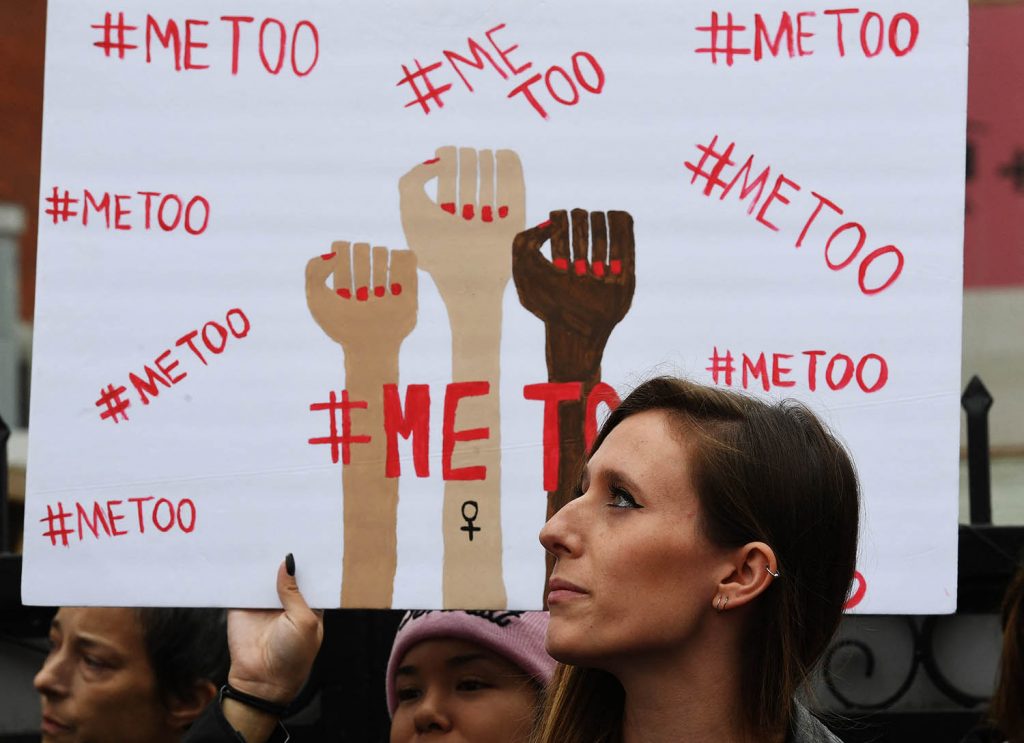
As they wrote in their bestselling account of the investigation, She Said: Breaking the Sexual Harassment Story that Helped Ignite a Movement (2019): “The United States had a system for muting sexual harassment claims, which often enabled the harassers instead of stopping them. Women routinely signed away the right to talk about their own experiences. Harassers often continued onward, finding fresh ground on which to commit the same offenses.”
Faithful to its source material, Maria Schrader’s excellent movie adaptation of their story frames the long, arduous and often frustrating battle to report the truth about Weinstein as a battle against a system that has ruthless defence mechanisms and strategies of retaliation when it senses itself under threat. Weinstein’s rape and sexual harassment of scores of women – and the collusion of the entertainment industry in shielding his horrendous crimes from the daylight of disclosure – was only one, egregious example of a planetary phenomenon.
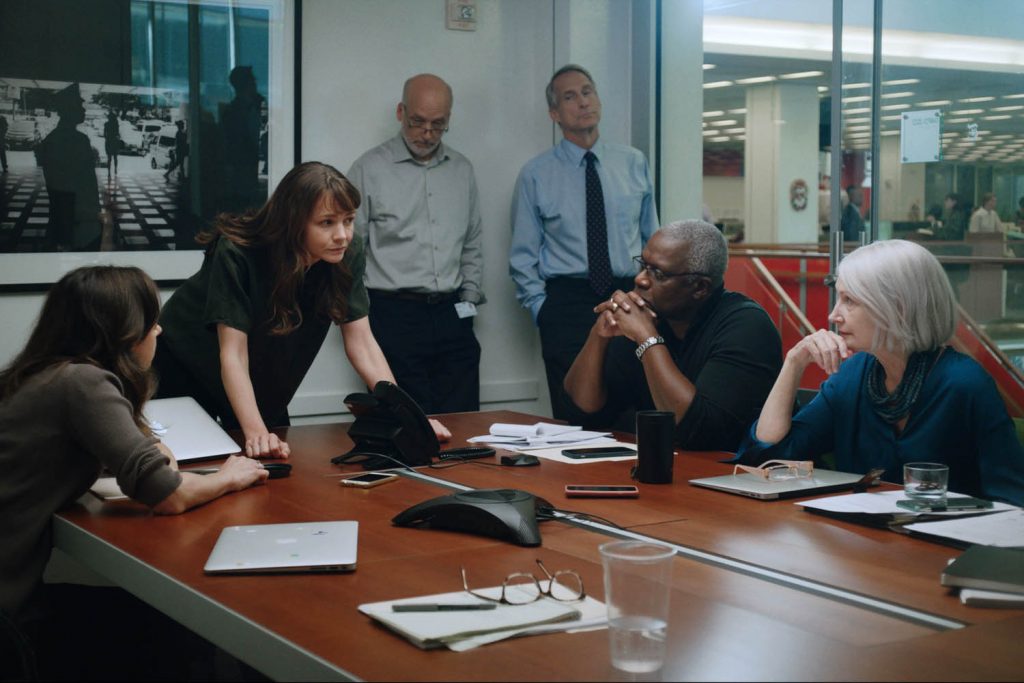
Carey Mulligan as Twohey and Zoe Kazan as Kantor are outstanding, as are Patricia Clarkson as Rebecca Corbett, the head of the newspaper’s investigative department, and Andre Braugher as NYT executive editor Dean Baquet. As the daunting scale of the task becomes clearer, their professional solidarity is fortified: the reporters – mindful that Donald Trump has recently been elected president, despite many allegations of sexual harassment and the infamous Access Hollywood recording in which he boasts that a famous man can “grab ‘em by the pussy” – fret that, even if they land the story, nobody will care.
Deftly, Schrader and the movie’s writer Rebecca Lenkiewicz avoid the trap of placing Weinstein at the heart of the story. We see the Shrek-like back of his head when he goes to the NYT office. We hear his disembodied voice on telephone calls. And there are sickening sections of the real-life recording of Weinstein harassing model Ambra Battilana Gutierrez at the Tribeca Grand Hotel in March 2015 (the case was investigated at the time but no charges brought). His is the voice of a monstrous baby-man, his wheedling tone as he pleads with Gutierrez compounding the depravity of his actions. But the movie, quite rightly, denies him the dark stardom of full-blown cinematic villainy. He is pointedly de-centred.
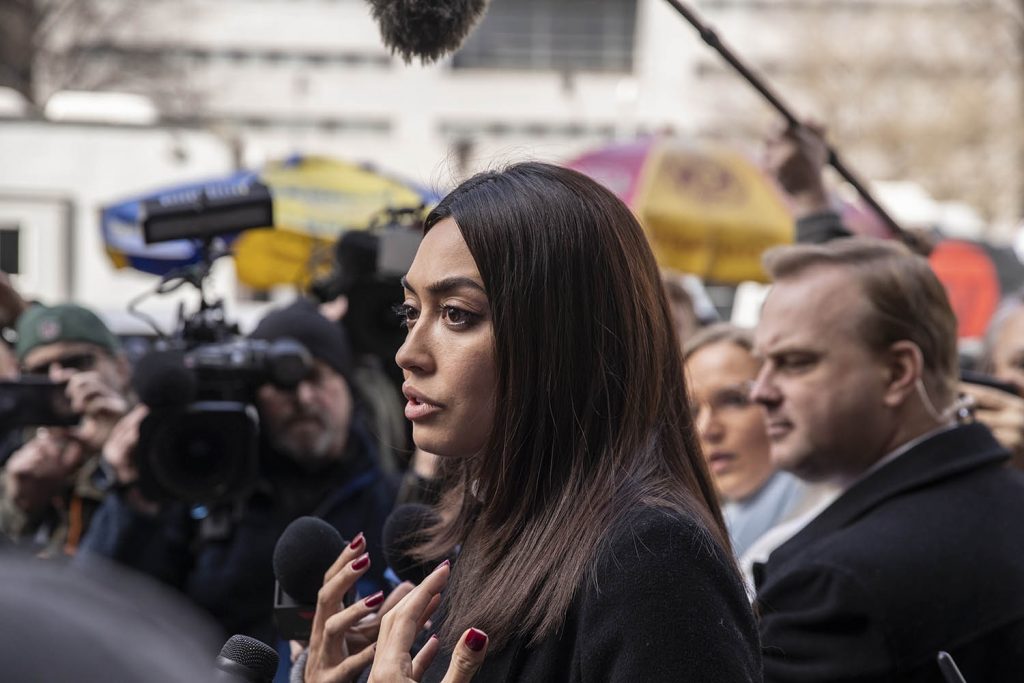
Some have already grumbled that She Said lacks the dopamine hits and breathless drama of a generic newsroom thriller. But this is very far from a defect. Indeed, the film’s greatest strength is its authenticity and honesty about the reporting process. In contrast, All the President’s Men (1976) derived much of its impact from the testosterone-charged tensions between Bob Woodward (Robert Redford), Carl Bernstein (Dustin Hoffman) and their boss Ben Bradlee (Jason Robards), melodramatic music, and perilous meetings in an underground car park with the silhouetted source “Deep Throat”.
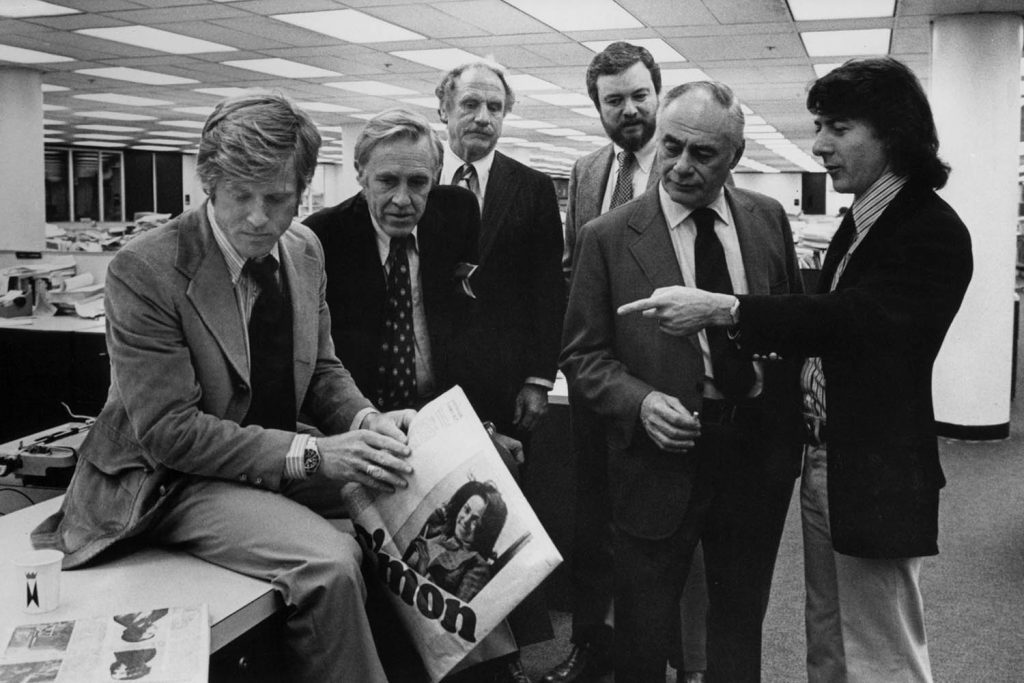
There is no such pulse-quickening action for Twohey and Kantor, no shots of the two reporters racing through the newsroom, clutching copy, as typewriters clatter in the background. The maze in which they are stuck is firmly of the digital era: laptops, smartphones, text messaging. Their first and most important task is to get hold of the private numbers and email addresses of the famous actresses whom, they deduce, Weinstein is most likely to have harassed (in this early phase of information-gathering, Lena Dunham and her producing partner Jenni Konner were indispensable allies).
Doors are closed in their faces; potential sources recite legal formulae concerning the supposedly amicable resolution of past disputes with Miramax, Weinstein’s company; and (initially, at least) those who have gone public about their horrific experiences with the producer without naming him, such as the actress Rose McGowan, are reluctant to go further.
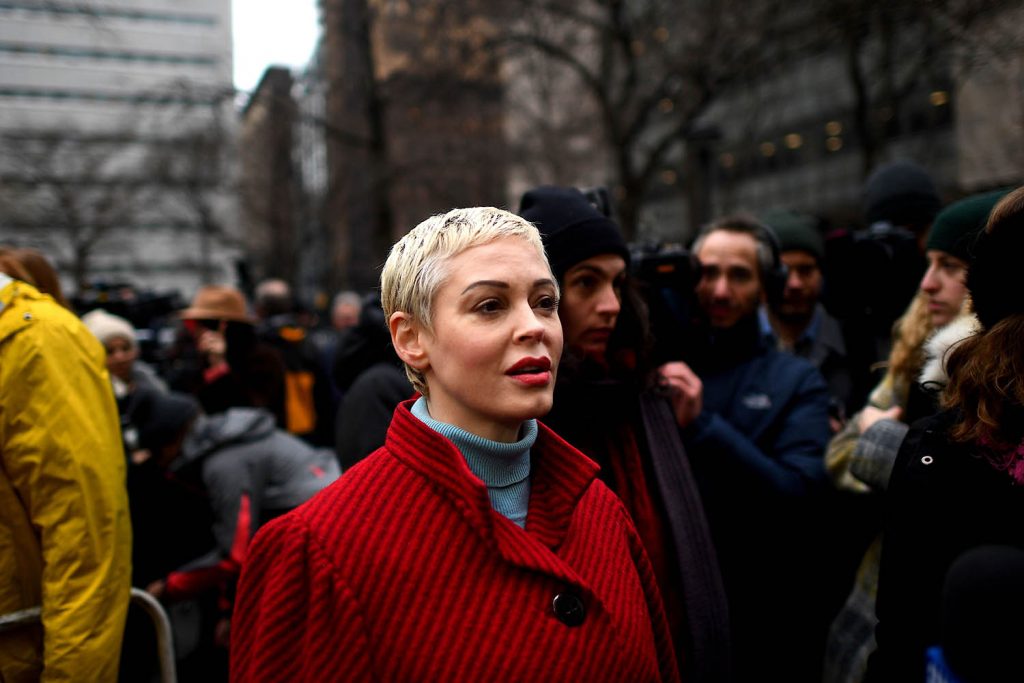
Twohey and Kantor receive anonymous rape and death threats and believe they are being followed (for more on the extraordinary and menacing lengths to which Weinstein went to maintain the cover-up, try Ronan Farrow’s Catch and Kill: Lies, Spies and a Conspiracy to Protect Predators). But still, meticulously and at considerable personal cost, they persist.

As a consequence, the moments of breakthrough, when they come, are all the more powerful. In an extraordinary scene, Zelda Perkins (Samantha Morton), Weinstein’s former assistant, explains to Kantor how Weinstein and his legal team coerced the women he had harmed to sign non-disclosure agreements that, in Perkins’s case, included the obscene requirement that any “medical professional” she consulted about her experiences would have to sign a separate confidentiality agreement. It is a bitter reflection that only five months after she signed her settlement, Weinstein was once again the toast of Hollywood, sweeping the board at the 1999 Academy Awards for Shakespeare in Love. (The debased inner world of a sexual predator’s empire and the stresses to which his staff are daily subject is brilliantly portrayed in Kitty Green’s 2019 movie, The Assistant – which all but names Weinstein as the terrifying, unseen boss for whom its characters work.)
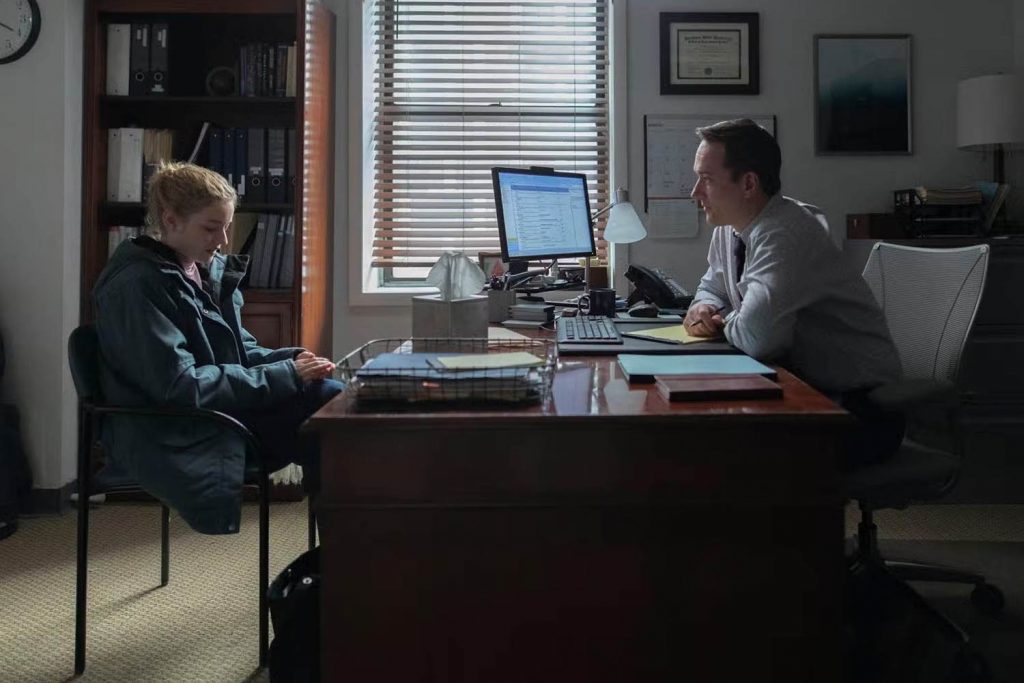
With the crust of silence broken, Twohey and Kantor begin to assemble a publishable story: a former Miramax employee, Laura Madden (Jennifer Ehle), though still recovering from breast cancer, agrees to go on the record about her sexual assault at Weinstein’s hands in Dublin in 1992 when she was in her early twenties. Other women follow, notably the actress, Ashley Judd (who plays herself). As the two reporters grasp early in the investigation, the use of NDAs was designed to isolate Weinstein’s victims and to remove the risk of collaboration: the key to the story was that the women “jump together”.
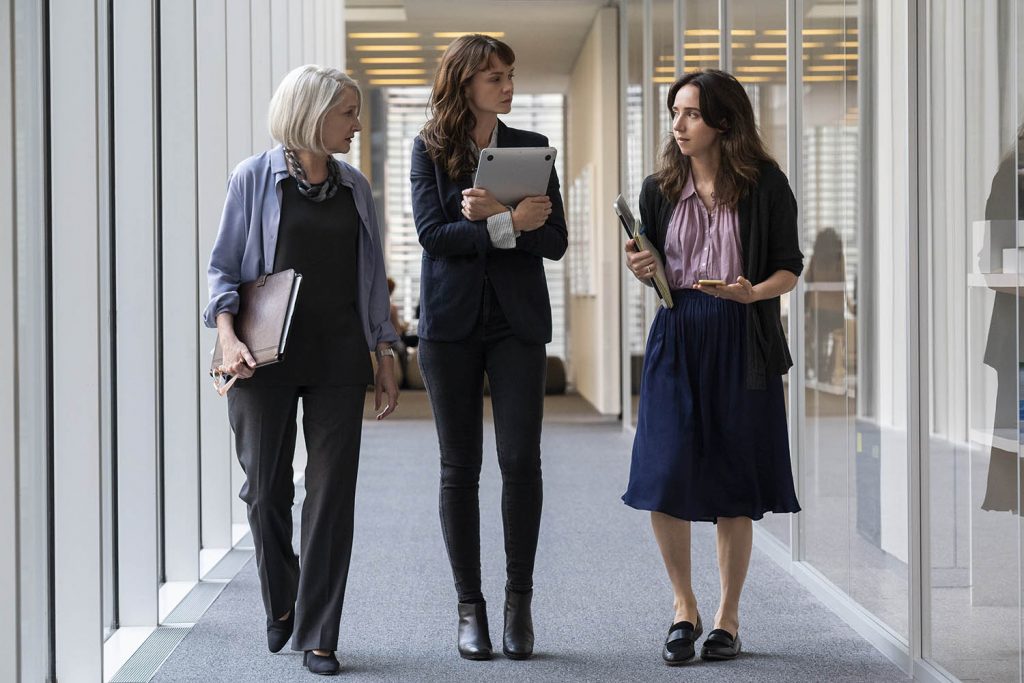
And they did, with historic consequences. Ten days after the original NYT story, the actress Alyssa Milano, borrowing the phrase first coined by the activist Tarana Burke in 2006, posted the following on Twitter: “If you’ve been sexually harassed or assaulted write ‘me too’ as a reply to this tweet.” Within 24 hours, she had received 12 million responses across social media.
Weinstein is now serving a 23-year sentence, following his conviction in February 2020 for third-degree rape and a first-degree criminal sexual act. He is presently on trial in Los Angeles for seven additional charges of rape and sexual battery, and faces yet another prosecution in London.
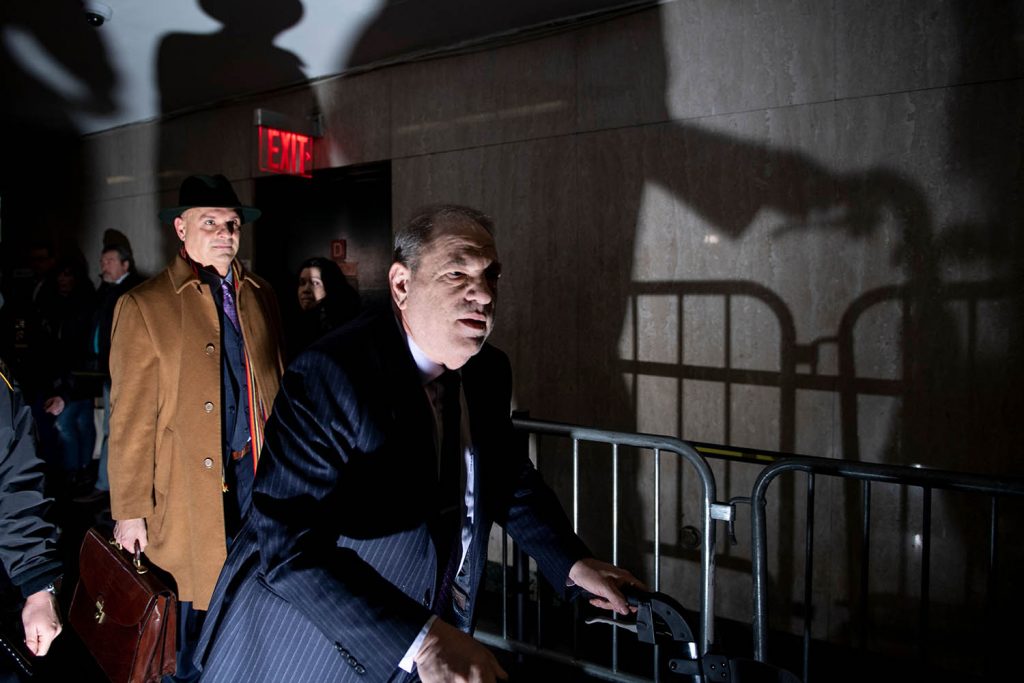
As Kantor and Twohey write in their book: “The #MeToo movement is an example of social change in our time but is also a test of it: In this fractured environment, will all of us be able to forge a new set of mutually fair rules and protections?”
Five years on, the revolution is certainly unfinished. A series of high-profile predators have indeed been jailed (notably the former musician R. Kelly, sentenced in June to 30 years). Others have been disgraced, such as Andrew Cuomo, who resigned as governor of New York in August 2021 after an investigation commissioned by state Attorney General Letitia James found that he had sexually harassed 11 women.
In the US, 22 states have legislated to make workplaces safer. In the UK progress has been slower. Having launched a consultation on strengthening protections against harassment in July 2019, the UK government is only now supporting a private member’s bill introduced by Liberal Democrat MP Wera Hobhouse to turn promises into law. Too many companies have supported the #MeToo movement performatively but without taking meaningful action. Too many employees in the modern gig economy are unprotected even by the new legal and regulatory structures.
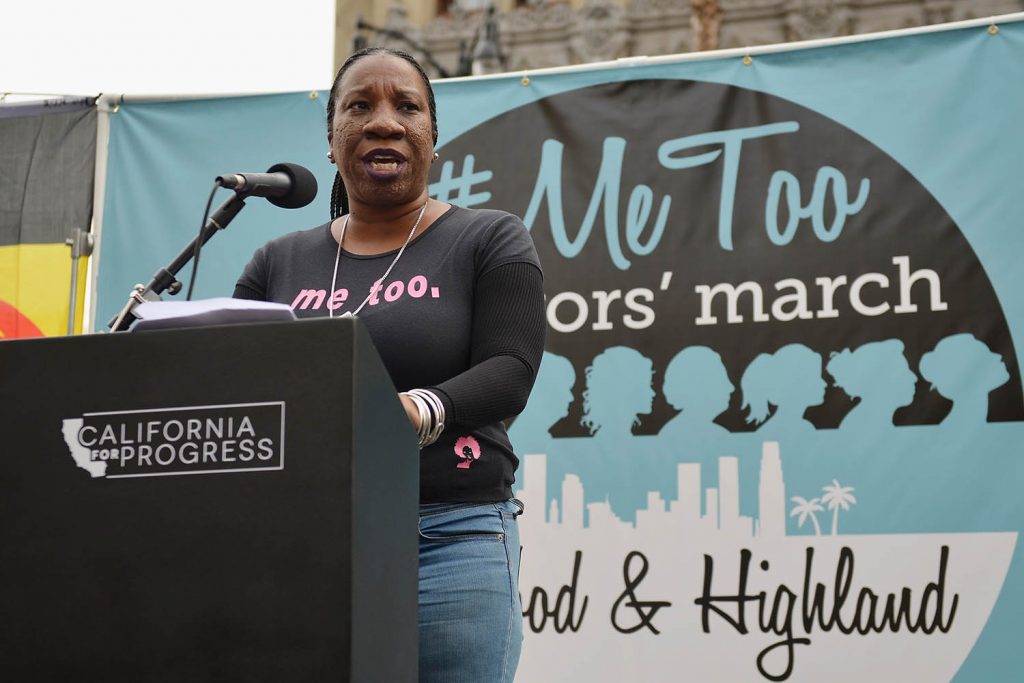
In 2018, Tarana Burke declared that the movement she founded had become “unrecognisable”, increasingly misrepresented “as a vindictive plot against men”. The online vilification of Amber Heard during the defamation case brought against her in Virginia by her ex-husband Johnny Depp showed how brutal this backlash can be.
For their part, though, Kantor and Twohey remain cautiously optimistic. In an NYT article last month to mark the fifth anniversary of their Pulitzer Prize-winning story, they wrote that, in spite of the setbacks that the movement has suffered, “the past five years have been very consequential.”
The paradox of social change is the dual necessity of impatience (why has nothing happened yet?) and unyielding stamina (keep going, no matter what). In this sense, She Said is a parable of contemporary social justice as well as a terrific movie: a reminder that true progress, like the best investigative journalism, is invariably a long haul.










